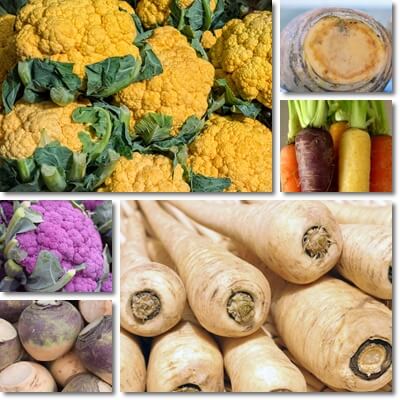Are you tired of traditional mashed potatoes and looking for healthy alternatives to the dish this holiday season? It’s a somewhat unwritten tradition to have mashed potatoes for the winter holidays, be it Thanksgiving, Christmas or a family gathering or celebration. But other root and leafy vegetables make for similarly savory mashed dishes and are often times a lot more nutritious, and in season too. Discover these 8 healthy non-traditional seasonal mashed vegetable recipe ideas to try this season and all the things that make them good to eat.
Mashed white cauliflower
Mashed white cauliflower is quite the orthodox alternative to classic mashed potatoes. You can prepare it the same way you would classic mashed potatoes, with milk, butter, sour cream, oil or even soft cheese, although it’s perfectly creamy and delicate by itself with just some seasoning. In case you feel it tastes too much like cauliflower, you can pair with bulb fennel, turnip or parsnip to tone down the cruciferous flavor of this all-cauliflower mash, or mix in some crushed garlic sauce. Top with fresh parsley, seasonal stir-fried chopped leek or bacon bits.

Benefits of white cauliflower mash:
- It’s light and low-calorie, perfect for weight management or weight loss.
- It’s gluten-free and starch-free and won’t cause post-meal sluggishness.
- It contains glucosinolates which yield isothiocyanate metabolites with anticancer properties.
- Cauliflower together with dairy milk, if used, provide generous amounts of potassium and magnesium with benefits for high blood pressure.
- High in vitamins B5, B6 and B9 that help make red blood cells and combat anemia and associated tiredness, fatigue, weakness, including muscle weakness, and low mood and productivity.
- Anti-inflammatory benefits from vitamin K and also vitamin C (if cooked lightly).
- Benefits for bones and teeth owed to vitamin K, calcium, phosphorus and magnesium content (and vitamin D if dairy milk or cheese are added).
Mashed purple cauliflower
Turn the tables on the classic white cauliflower mash by using purple cauliflower instead. The purple color of the cauliflower is provided by anthocyanin antioxidants with scientifically proven anticancer properties. The variety is also a source of glucosinolates that produce isothiocyanates, compounds with known anticancer effects. Just note that your purple cauliflower mash may actually turn somewhat red or violet depending on cooking time and if you add acidic ingredients to it such as lemon juice or vinegar.
Benefits of purple cauliflower mash:
- Double the anticancer properties from isothiocyanate metabolites and purple pigmented anthocyanin antioxidants.
- Additional anti-inflammatory properties owed to pigmented anthocyanin antioxidants.

Mashed orange cauliflower
You can make mashed orange cauliflower for both a traditional and, at the same time, unique seasonal recipe. Orange cauliflower is a great source of beta-carotene, a pro-vitamin A carotenoid antioxidant with benefits for eye health, skin health and the immune system. You can pair your orange cauliflower with orange carrots or orange sweet potatoes to tone down the broccoli-like taste and add some natural sweetness to the dish, or some parsnip for extra creaminess.
Benefits of orange cauliflower mash:
- Benefits for eyesight: beta-carotene protects the eyes against damage from sunlight and promotes good visual acuity, color vision and low light (or night) vision.
- Benefits for skin: beta-carotene is a precursor to vitamin A which is essential for the production of new skin cells and skin cell differentiation, contributing to skin cell renewal.
- Anti-aging benefits owed to the pro-vitamin A activity of beta-carotene.
- Benefits for the immune system and immune system organs and tissues.
Mashed turnip root
In the old days turnips were a poor man’s food, essentially a survival crop during hard winters. But the turnip has gone through some major rebranding and is now regarded as a healthy root vegetable, worth including in any diet. Turnips make a sweet, aromatic, low-calorie mash, perfect for the holidays and family gatherings. You can add some butter for creaminess, garnish with bacon bits and season plainly with salt and pepper and maybe fresh parsley. Or pair the turnip with some parsnip for extra creaminess, bulb fennel or Daikon radish for a unique aroma, rutabaga for a more robust, earthy flavor, or just roast the turnips instead of boiling.
Benefits of turnip mash:
- Low in calories and naturally almost fat-free, turnip root makes a good food for healthy weight loss (unless you throw in lots of butter, cheese and dairy milk).
- Source of minor benefits for high blood pressure owed to a modest magnesium and potassium content.
- Source of minor benefits for bones and teeth owed to a modest calcium, magnesium and phosphorus content.
- Low in carbs and sugar, but a good source of dietary fiber for digestive health and constipation relief.
Mashed parsnip
Mashed parsnip is the absolute simplest, most delicately-flavored and unpretentious alternative to decadent mashed potatoes. Cooked parsnip has a subtle sweet taste, with a straightforward flavor profile, and is soft, creamy and light, and it’s in season right now. It can be eaten as it is, or paired with white carrot, turnip root or rutabaga for added flavor. And December to February is a good season for parsnip because cold weather makes the starches turn into natural sugars and parsnip root taste sweeter. And another tip: cook and eat your parsnip whole, flesh and skin, to get all the nutrition it has to offer.
Benefits of parsnip mash:
- High in manganese and good source of phosphorus, contributes to bone mineral density.
- Excellent source of dietary fiber (almost 5 g/100 g) with cholesterol-lowering and laxative properties, providing natural constipation relief.
- Anti-inflammatory benefits from vitamins K, C and E, manganese.
- Benefits for high blood pressure owed to a good potassium and magnesium content.
- Helps combat fatigue and low blood sugar via a good carbs content (18 g/100 g).
- Benefits for anemia and related symptoms (tiredness, muscle weakness, headaches, shortness of breath, dizziness) via a good content of iron and vitamins B1, B5, B6 and B9.
- Benefits for the immune system owed to zinc and vitamin C (provided cooking is light).
- Benefits for pregnant women thanks to a good content of vitamin B9 and other B vitamins and iron.
- Source of chemicals with scientifically proven anticancer properties such as falcarinol, farcalindiol, methyl-falcarindiol and panaxydiol.
Carrot mash
Instead of mashed potatoes, or mashed sweet potatoes, have you considered mashed carrots for a healthy dish for the holidays? Granted, carrot mash may remind some people of pureed baby food, but there are ways to overcome that. You can mix in healthy parsnip, turnip or rutabaga (roasted for extra flavor), season with salt, pepper, herbs like fresh parsley, thyme or rosemary, even turmeric or ginger powder, and add extravirgin olive oil or a cold-pressed nut oil, even peanut paste for a creamier texture and richer flavor profile.
Top with bacon bits, red onion sautéed in oil and tomato sauce with sweet, spicy or smoked paprika, sautéed chives, green onions or seasonal leek, roasted walnuts or peanuts or grated Parmesan cheese. And you can choose the color too: white carrots or bright-colored varieties like yellow carrots, orange carrots, red carrots or purple or black carrots.
Benefits of mashed carrots:
- Anticancer properties from compounds occurring naturally in carrots such as falcarindiol and falcarinol.
- Cholesterol-lowering properties owed to a good dietary fiber content (2.8 g/100g).
- Blood pressure lowering properties owed to a good potassium and magnesium content.
- Anti-inflammatory properties from vitamin K and manganese.
- Benefits for eyesight, namely visual acuity, color vision and dim light vision, thanks to a high content of pro-vitamin A beta-carotene in orange carrots.
- Lower risks of cataract and age related macular degeneration (AMD, loss of vision due to old age) thanks to xanthophyll antioxidants in yellow carrots.
- Benefits for high blood pressure thanks to lycopene in red carrots.
- Anticancer properties thanks to anthocyanins in purple and black carrots.
Celery root (celeriac) mash
If you are not allergic to celery, then celeriac mash makes for an excellent mashed potatoes substitute. Celeriac is a variety of celery cultivated for its bulky, knobby root called celeriac or simply celery root. Roasted, boiled or steamed celeriac mash can be seasoned simply with salt, pepper and a couple of tablespoons of oil or butter and makes for a tender, soft and creamy mash with pleasant celery flavor notes of medium intensity. You can add roasted parsnip, turnip, rutabaga or make a mixed potato and celery mash.
Benefits of mashed celeriac:
- Benefits for bone mineral density owed to a good content of phosphorus, magnesium, manganese and small amounts of calcium.
- Benefits for thyroid health owed to a good content of phosphorus.
- Benefits for blood coagulation thanks to a generous content of vitamin K.
- Anti-inflammatory benefits from manganese and vitamin K.
- Benefits for energy metabolism owed to B vitamins, iron and a range of dietary minerals.
- Benefits for anemia owed to a good vitamin B6 content.
Spinach mash
Have you considered spinach for a vegetable mash this season? Spinach is actually an off-season, year-round leafy vegetable available pretty much anywhere. Sauté one small onion or half a leek, add 500-750 g of spinach and simmer down until cooked. Season with salt, pepper, 3-4 cloves of crushed garlic and mix in a little bechamel sauce (1-2 tablespoons of flour, 2 tablespoons of butter and 150-250 ml milk). Serve with sunny side up eggs or soft-boiled eggs and traditional polenta for a unique dish.
Benefits of spinach mash:
- Laxative benefits owed to a high intake of fiber and mucilaginous compounds.
- Excellent anti-inflammatory benefits owed to an extraordinary vitamin K content.
- Good food for pregnant women thanks to a high vitamin B9 content to help with normal baby development during pregnancy.
- Benefits for lowering blood pressure numbers and cholesterol-lowering properties.
- Benefits for anemia owed to a generous B vitamins content.
- Benefits for eyesight and immunity owed to a high vitamin A content.
- Benefits for bone mineral density thanks to calcium, phosphorus and magnesium content.
